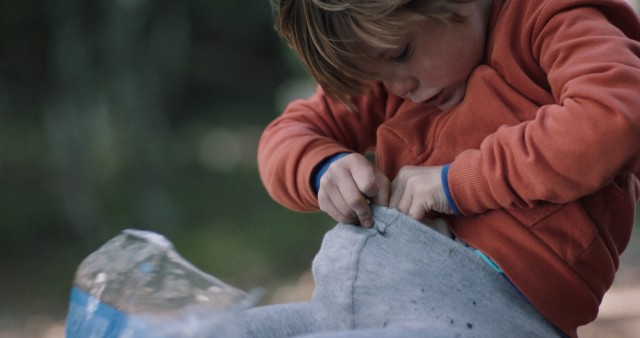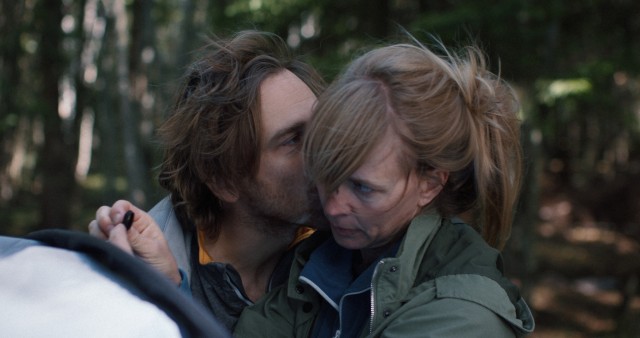Putting up a tent can become quite an ordeal. One that could either turn into a fun, bonding moment for the campers or a rather frustrating experience, set to destroy the holiday. Writer/director Rebecca Figenschau depicts the latter in her award-winning short Teltet (The Tent), which follows a family of four into the woods for their first camping trip. Already plagued by family tension, their misguided attempt to set up camp intensifies their disagreements and results in a delightfully dark and twisted comedy, true to Scandinavian cinema.
“Suppressing emotions is known as a typical Scandinavian way of relating to uncomfortable situations”
Aiming to explore a situation where good intentions try to cover up a conflict, but end up having the opposite effect, Figenschau explains that “suppressing emotions is known as a typical Scandinavian way of relating to uncomfortable situations”. Tackling the scenario through a humorous and tragic lens, the specifics of The Tent’s premise have universal appeal, as we witness the parents trying to do their best, while also attempting to protect their children from their escalating frustrations.

Christian Magnus Vangen as Kim, the family’s youngest child, full of mischief.
Even without knowing the origin of their conflict, from the opening scene, we can see the tension between the couple and it quickly becomes obvious the father is trying very hard to overcompensate for something. The remoteness of the location and the practical challenges of camping for a group of rookies, with a dash of teenage angst from the daughter, creates the perfect pressure cooker about to explode. The frustration of not being able to build the tent opens pandora’s box, and all the things left unsaid in the family come quickly (and angrily) tumbling out.
Figenschau builds that tension at an entertaining and gripping pace. Fed by both the mystery of why they are camping instead of being in Mallorca and their struggles with the tent, she fleshes out the stress of their trip, by cleverly revealing facets of her characters’ personalities. Will they actually have somewhere to sleep tonight? And will they address the conflict they are so desperately trying to avoid?
The reveal comes as a nice surprise and offers some relief following all the tension, especially as Scandinavian films can typically have much darker endings. In the end, we understand both sides of the conflict and though we’re obviously happy to not be in that situation, we certainly enjoy watching them deal with it. It truly wraps the film on a fun note.

Sigurd Myhre (L) & Christina Ørbekk Nikolaisen as Bjørnar & Solveig, The Tent’s squabbling parents
The chemistry between the four actors feels incredibly authentic, making the struggle of their family all the more effective, emotionally and comically. The teenage daughter has the typical attitude we’d expect, yet it is never exploited purely to move the plot forward. While her kid brother displays the perfect frivolity and mischief of a younger sibling.
The most complex relationship though is that of parents. He has clearly done something wrong and she is trying her best (ok, maybe not her very best) to move forward, even though she has not yet fully processed nor forgiven his actions. Her emotional state drives the film and watching her dealing with the tension, and having to build that freaking tent, with no instructions, magnifies the comedic and tragic aspects of the film no end.
The Tent won the Oscar Qualifying Grand Prix Award at Encounters in 2019, and was submitted to the 2019 European Film Awards. Figenschau is currently in the writing stages of her debut feature, which she qualifies as “a drama about a kid who tries to develop spiritual skills in order to get through to her mother, who is lost in a spiritual psychosis”.

 Céline Roustan
Céline Roustan